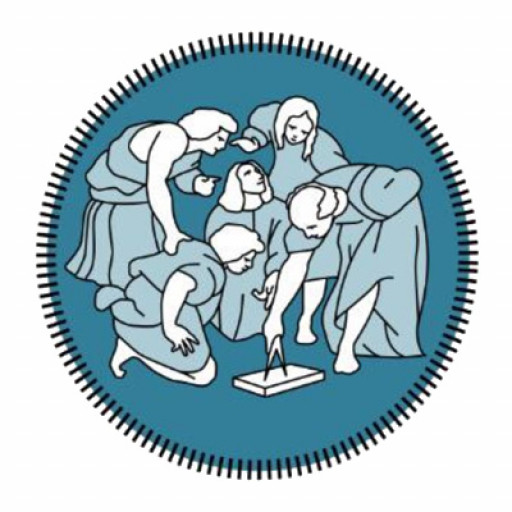Photos of university
The BEng (Hons) in Aerospace Engineering (Sandwich) at Queen's University Belfast offers students a comprehensive understanding of the design, development, and maintenance of aircraft and aerospace systems. This innovative programme combines rigorous academic coursework with practical industry experience, preparing graduates for a successful career in the aerospace sector. The course curriculum covers a broad range of topics including aerodynamics, propulsion systems, structural analysis, materials science, control systems, and avionics, ensuring a well-rounded education in both theoretical and applied engineering principles. A distinctive feature of this programme is the 'sandwich' placement year, during which students gain valuable industrial experience by working with leading aerospace companies and organizations. This year-long industry placement not only enhances technical skills but also fosters professional networking and practical problem-solving abilities, giving students a competitive edge in the job market. Queen's University Belfast’s state-of-the-art laboratories and workshops provide students with hands-on learning opportunities, enabling them to apply their knowledge to real-world engineering challenges. The programme emphasizes teamwork, communication, and project management skills, which are vital for working effectively in multidisciplinary teams within the aerospace industry. Graduates of this programme are well-equipped to pursue careers in aerospace design, manufacturing, testing, maintenance, or research and development. Additionally, the programme provides a strong foundation for further study or research in aerospace engineering or related fields. With a combination of excellent academic support, industry exposure, and research-driven teaching, the Aerospace Engineering (Sandwich) programme at Queen's University Belfast aims to develop innovative and competent aerospace engineers capable of contributing to advancements in aviation technology worldwide.
Detailed Course Facts
Application deadline January 15 Tuition fee- EUR 4160 Year (EEA)
- EUR 13380 Year (Non-EEA)
England, Scotland and Wales £9,000; EU £3,575; International: £11,500
Start date September 2015 Duration full-time 36 months Languages Take an IELTS test- English
Course Content
The three-year BEng degree covers all the important technologies in Aerospace Engineering, providing students with the basic skills needed for professional practice. The four-year MEng degree consists of core aerospace topics with extended study of selected topics in aerodynamics, structures, systems, management and manufacturing, including industrially-oriented project work, with an additional aim of generating top-quality graduates for management. Major themes of study for Aerospace Engineering are as follows:
Aircraft Design: our key aim is to provide students with the necessary skills to enable them to design aircraft and this major theme runs throughout the degrees, drawing on all of the major Aerospace Engineering topics.
Aerodynamics: when air moves around an aeroplane, it generates aerodynamic forces, the main ones being lift and drag, and the principal role of the aerodynamicist is to minimise the drag produced for a given lift. This is achieved through the shape of the aircraft.
Flight Mechanics: the motion of an aircraft in flight is complicated since it operates in 3D space. The study of this motion is called flight mechanics and includes handling of the aircraft, and testing performance in flight.
Structures and Manufacturing: whatever the proposed configuration of an aircraft it must be built and keep its cargo (including people) safe. The strength and stiffness of the structure are vitally important and must be kept within safe levels during take-off, flight manoeuvres and landing. Modern materials such as carbon fibre composites require sophisticated analysis and design methods to enable performance and cost-effective manufacture.
Supporting Subjects: in order to gain skills necessary in professional practice, some key ancillary subjects are studied, eg mathematics, management, economics, law and entrepreneurship.
English Language Requirements
IELTS band : 6
To study at this university, you have to speak English. We advice you to
take an IELTS test. More About IELTSRequirements
MEng
- A-level AAB including Mathematics and at least one from Physics (preferred), Biology, Chemistry, Design/Technology or Further Mathematics.Note: applicants not offering Physics at A-level should have a minimum of a grade B in GCSE Physics or Double Award Science.
- BTEC Extended Diploma A relevant BTEC Extended Diploma with 16 Distinctions and 2 Merits. Distinctions will be required in stipulated relevant units.
- Irish Leaving Certificate AB2B2B2B2B2 including Higher Level grade A and B2 in any order in Mathematics and at least one from Physics (preferred), Biology or Chemistry.
Option to Transfer
Transfers between BEng and MEng may be possible at the end of Stage 1.
Work Experience
No work experience is required.
Related Scholarships*
- Academic Excellence Scholarship
"The Academic Excellence Scholarship can provide up to a 50 % reduction in tuition per semester. These scholarships will be renewed if the student maintains superior academic performance during each semester of their 3-year Bachelor programme. The scholarship will be directly applied to the student’s tuition fees."
- Access Bursary
Bursary for UK students all subjects where the variable tuition fee rate is payable.
- Alumni Bursary
Alumni Bursary for UK Undergraduate students
* The scholarships shown on this page are suggestions first and foremost. They could be offered by other organisations than Queen's University Belfast.
Funding
Although the majority of our graduates are interested in pursuing careers in Engineering, significant numbers develop careers in a wide range of other sectors. The following is a list of the major career sectors (and some starting salaries)that have attracted our graduates in recent years:
- Engineering professionals: £22, 823
- Information and Communication Technology professionals: £22, 244
- Public Service professionals: £22, 657
- Business and Finance associated professionals: £22, 217
Accreditation
Accreditation/Registration: the degrees are accredited by the Royal Aeronautical Society. The BEng fulfils the educational requirement for registration as an Incorporated Engineer (IEng) and partially fulfils the educational requirement for registration as a Chartered Engineer (CEng). The MEng fulfils the educational requirement for registration as a Chartered Engineer (CEng). BEng students who perform well during Stage 1 may be invited to transfer to the MEng degree in Stage 2.


